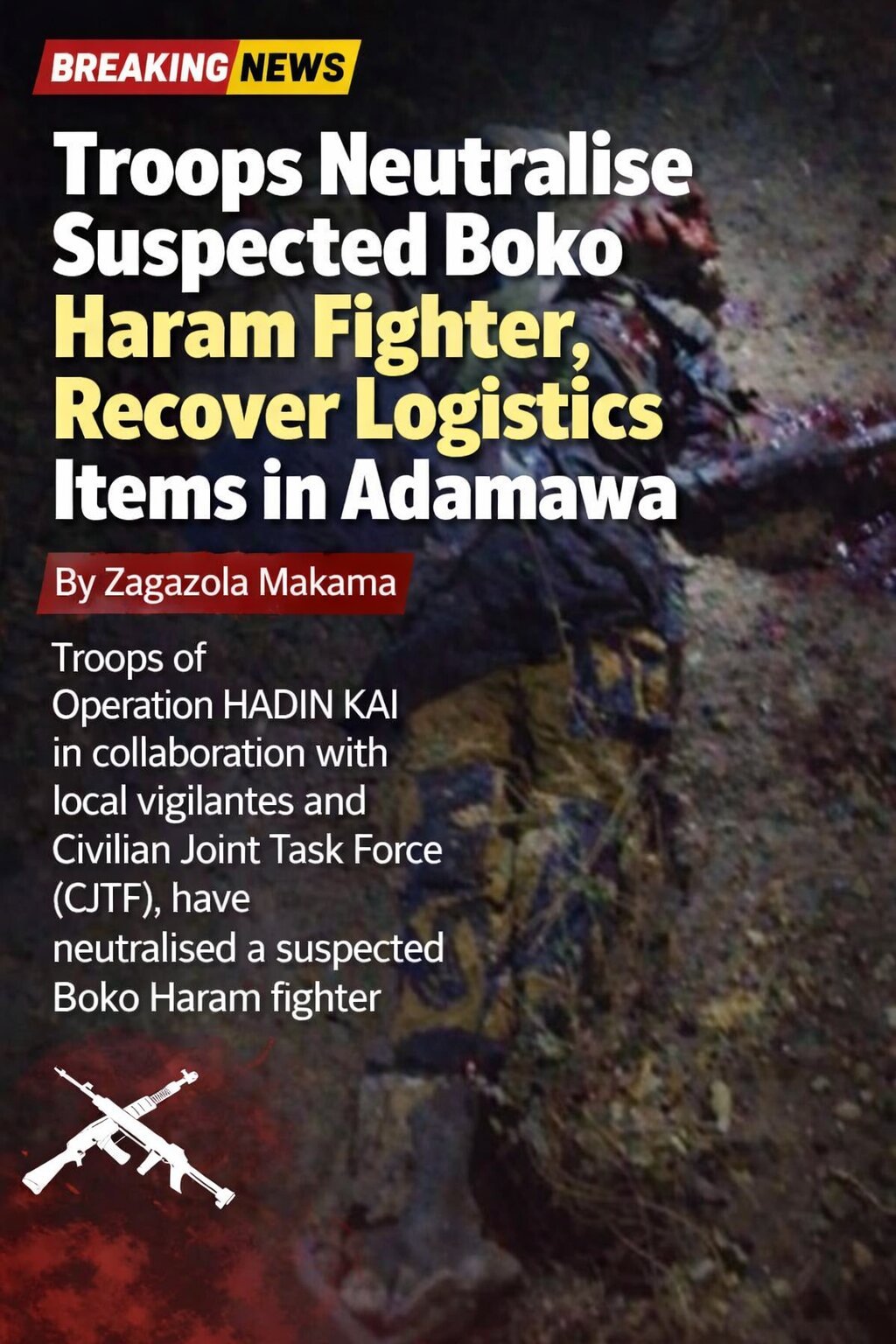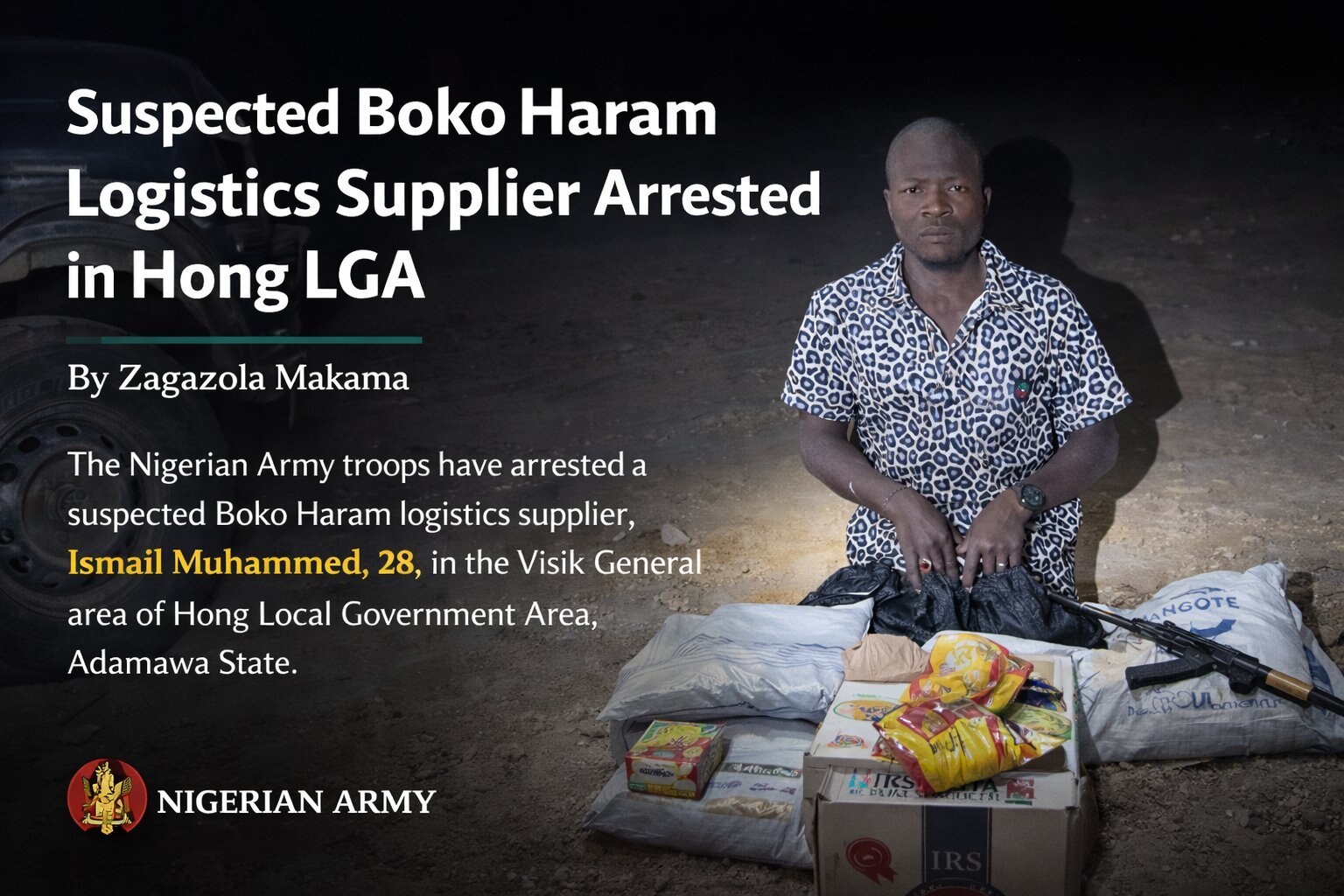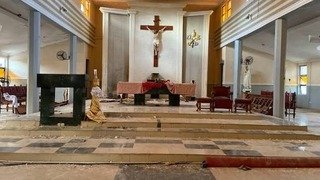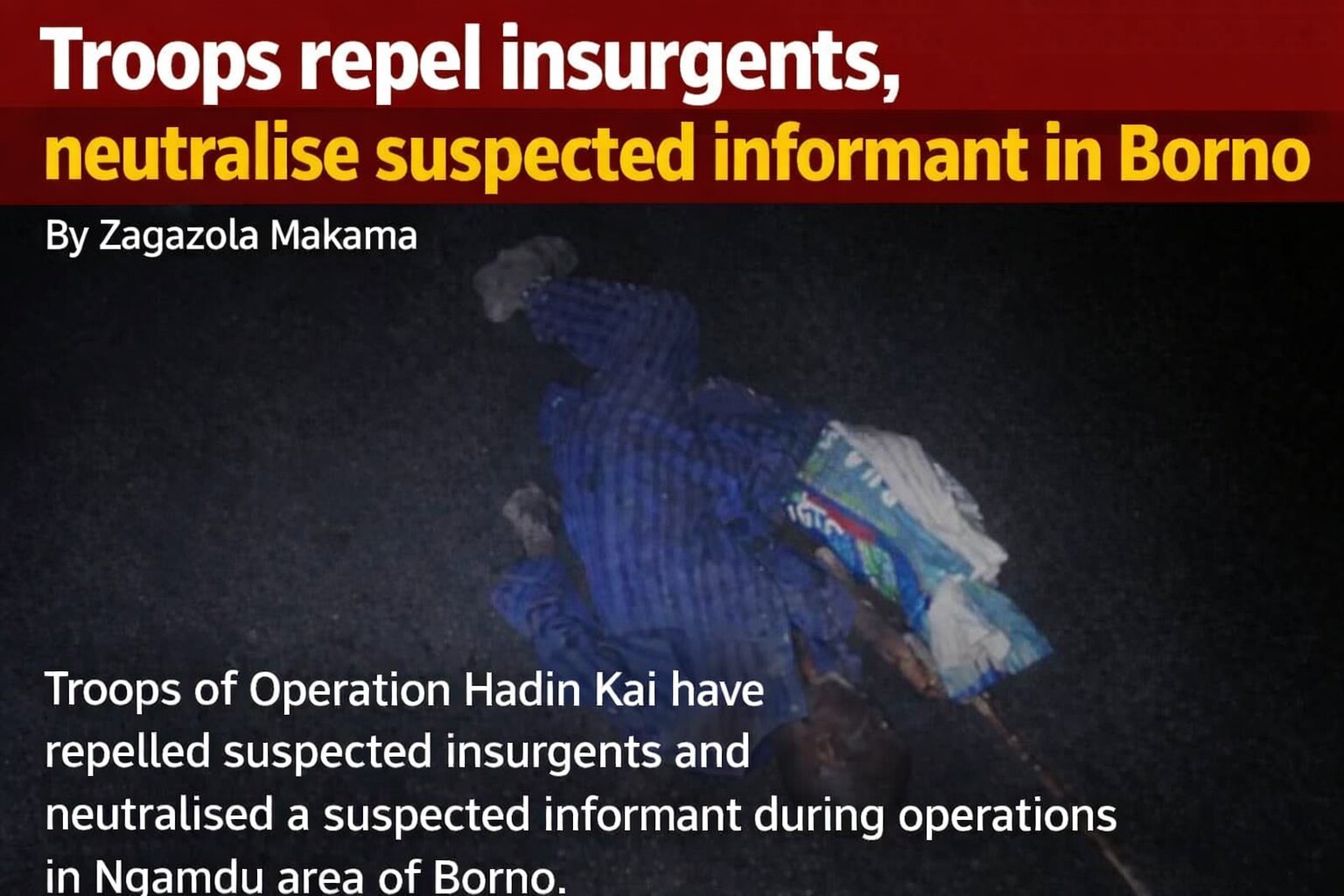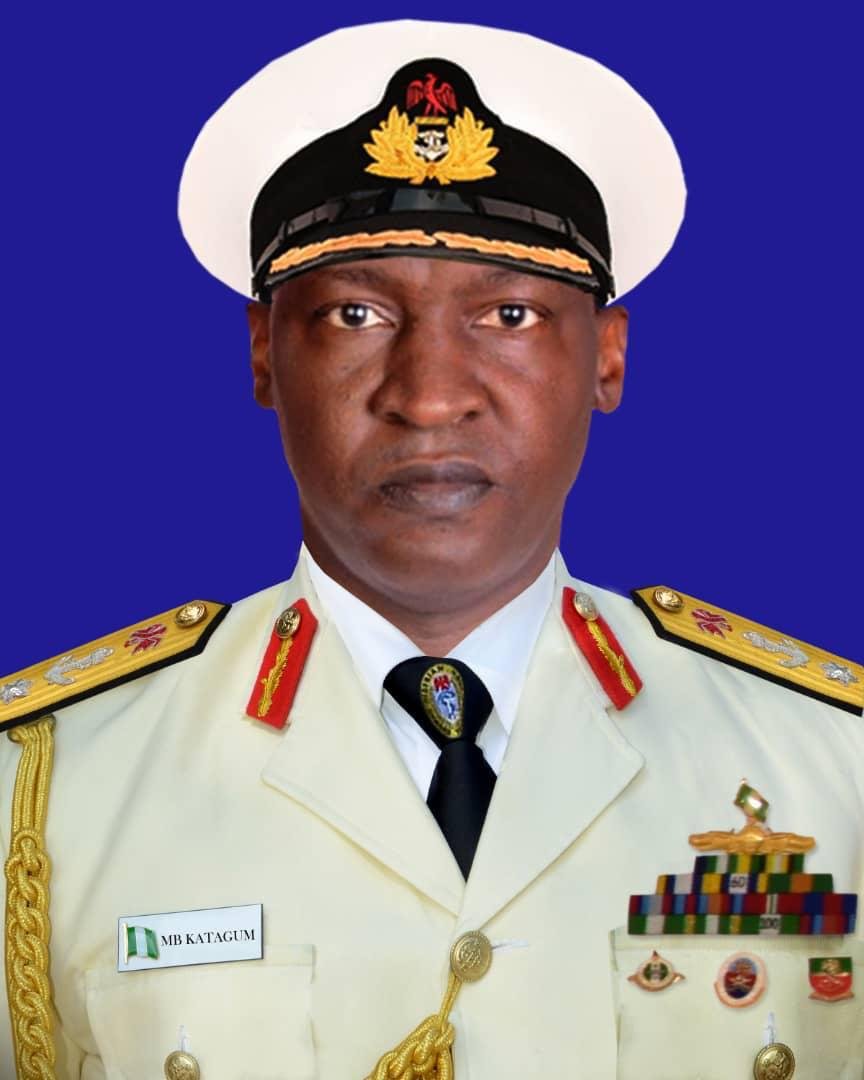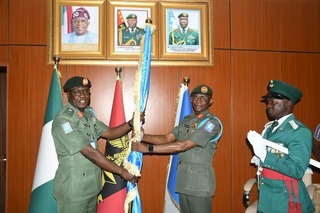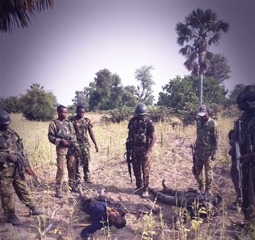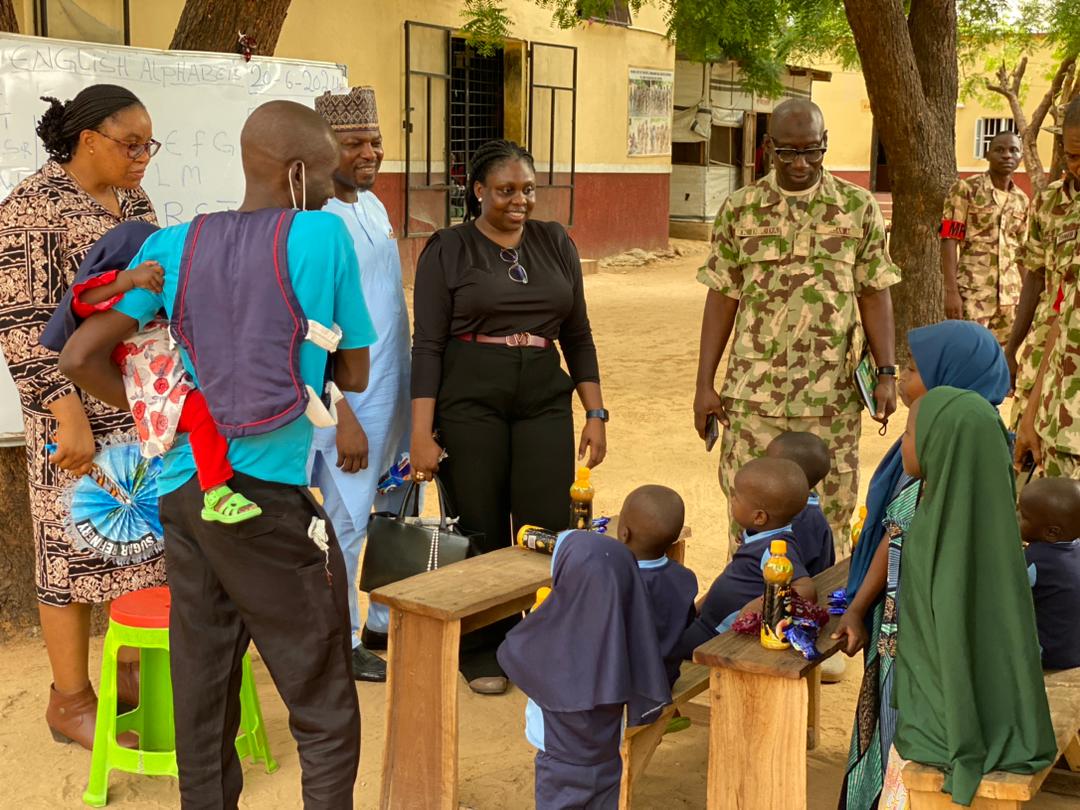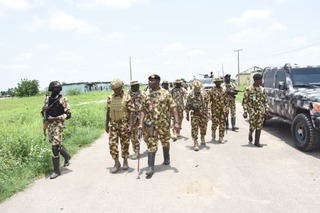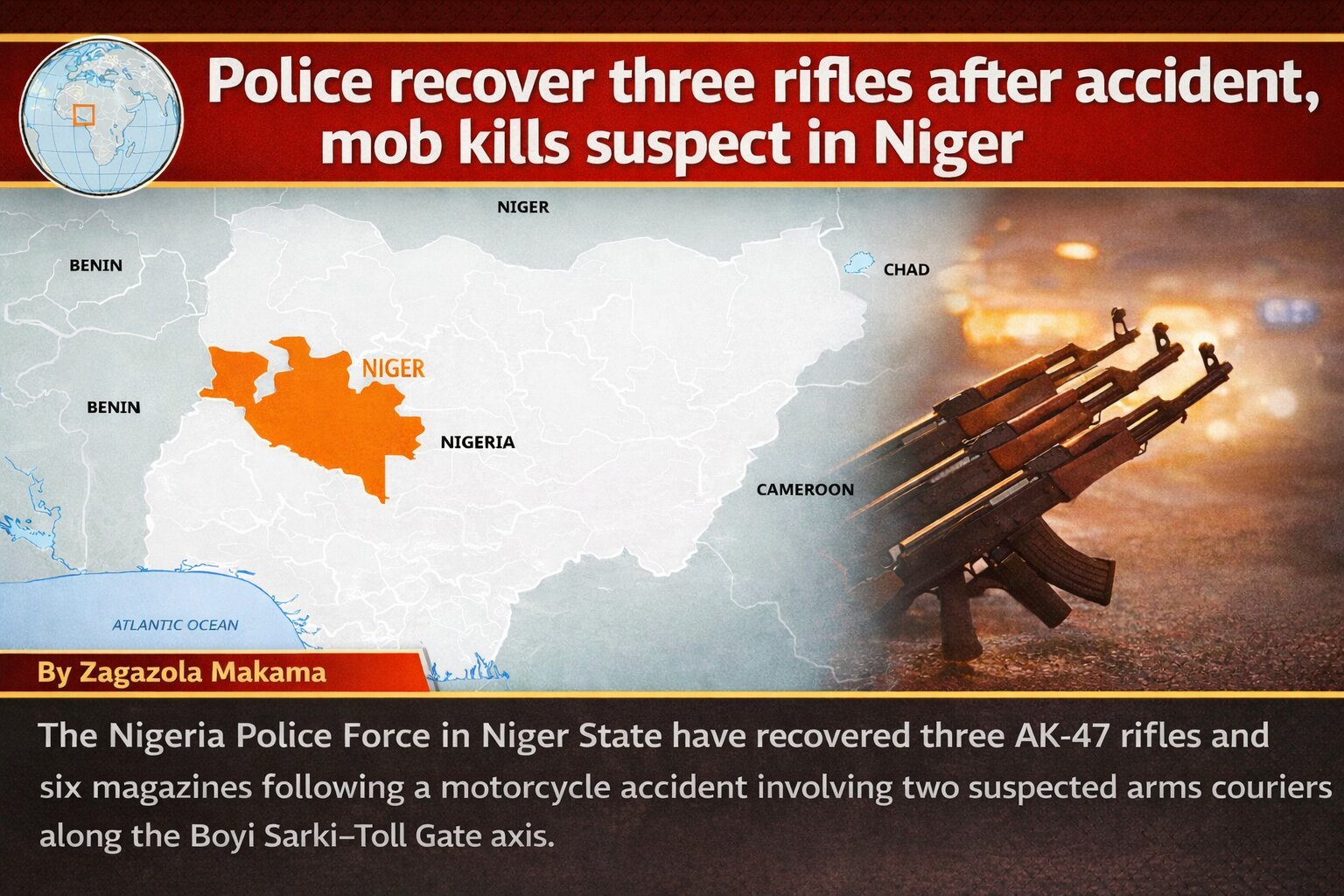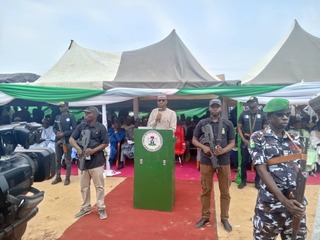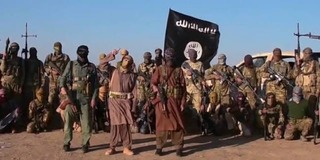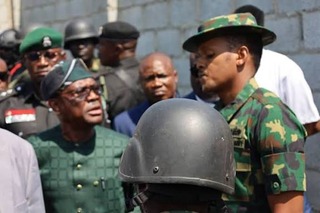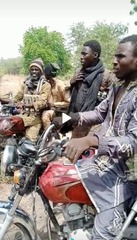Maj.-Gen. Saraso bows out of 1 Division with legacy of resilience and transformation
By: Zagazola Makama
The handing over of command in military tradition often marks not just a change of leadership but also a moment of reflection. For Maj.-Gen. Mayirenso Saraso, the outgoing General Officer Commanding (GOC) 1 Division Nigerian Army and Commander, Sector 1 Joint Task Force Operation FANSAN YANMA, his departure leaves behind a record of resilience, compassion, and transformative leadership that has redefined military–civil relations in Kaduna and the wider North-West.
Appointed in 2023, Saraso assumed command at a time when Kaduna and neighbouring states were reeling from banditry, kidnappings, and the scars of tragic incidents such as the accidental military drone strike in Tudun Biri village, Igabi Local Government Area. That single event, which claimed over 80 civilian lives in December 2023, could have eroded public trust and undermined military credibility. Instead, Saraso turned the tragedy into a pivot for healing, reconciliation, and renewal.
Under his watch, Tudun Biri transitioned from a forgotten hamlet into a model of post-conflict recovery. The Nigerian Army, in collaboration with the Federal and Kaduna State Governments, spearheaded interventions that rebuilt houses, provided solar-powered streetlights, constructed a school, and facilitated access to healthcare.
The GOC personally supervised outreach programmes, handing over motorcycles, relief materials, and empowerment tools to families affected by the drone mishap. He reassured survivors that the Nigerian Army under Lt.-Gen. Olufemi Oluyede, the Chief of Army Staff, remained committed to rebuilding trust.
“Rebuilding Tudun Biri was not just about structures; it was about restoring dignity and ensuring the people knew they were not forgotten,” he said during one of his visits.
Saraso’s tenure was remarkable for its dual approach combining decisive kinetic operations with non-kinetic measures that emphasised reconciliation, dialogue, and civic engagement. While troops under 1 Division conducted offensive operations that dismantled bandit strongholds across Chikun, Birnin Gwari, Kajuru, Kagarko and Giwa LGAs, they also opened doors to dialogue. This blend of approaches yielded extraordinary results.
16 notorious bandit leaders voluntarily surrendered, including figures once considered irredeemable such as Yellow Jambros, Kwolomeri, Biliya, and Kabiru Boderi, the brother of slain warlord Boderi Isyaku, while Bandits like Dogo Gide, lifted hostilities. Over 559 kidnapped victims were unconditionally released through negotiated channels, sparing the need for prolonged combat operations. 169 more hostages were rescued through direct military action, underscoring the balance of force and dialogue. 260 stolen livestock were recovered and returned to rightful owners, restoring rural livelihoods and confidence in state protection.
Even as he pursued peace, Saraso kept the pressure on hardened terrorist formations. Under his command, 1 Division neutralised dozens of high-value targets and seized a vast cache of weaponry, 175 assorted rifles including PK machine guns, AK-47s, and G-3 rifles, alongside 4,346 rounds of ammunition.
Clearing operations extended to previously inaccessible flashpoints Kuriga, Birnin Gwari, Pole Wire, Udawa, Dogon Dawa, Maidaro, Kusharki, and Zartake, restoring mobility along the Kaduna–Abuja and Kaduna–Birnin Gwari highways that had long been deathtraps.
What distinguished Saraso was his recognition that security is as much about trust as it is about firepower. He championed medical outreaches in vulnerable communities, bringing healthcare to thousands who had long been cut off from government services.
The Division engaged traditional, religious, and youth leaders through peace forums, while sporting initiatives like the Football for Peace Tournament created safe spaces for young people and discouraged their recruitment into armed groups.
Public speaking engagements by senior officers emphasised unity, education, and civic responsibility, fostering a culture of dialogue between the military and the communities it protects.
In Tudun Biri, the new central mosque built near the graves of those who perished became a living symbol of remembrance and reconciliation. Survivors like Malam Balarabe Garba, the Village Head, and women like food vendor Hajara Musa repeatedly credited the Army’s outreach under Saraso with restoring hope and dignity.
“Before this tragedy, no one knew Tudun Biri. But today, we are being heard. We now walk through paved streets lined with solar lights, far removed from the dusty paths of the past,” Garba said.
As Maj.-Gen. Saraso handed over the Division’s command flag on Aug. 20, 2025, to his successor, Maj.-Gen. Abubakar Sadiq Mohammed Wase, he did so with the satisfaction of leaving behind a stronger Division and a more hopeful people.
His tenure stands as proof that the Nigerian Army’s evolving strategy fusing kinetic operations with reconciliation, civic engagement, and development support can deliver both security and healing in communities scarred by conflict.
For the officers and men of 1 Division, and for the communities of Kaduna State, Saraso’s era will be remembered not only for the terrorists neutralised, or the weapons seized, but for the lives restored, the trust rebuilt, and the hope rekindled.
Zagazola Makama is a Counter Insurgency Expert and Security Analyst in the Lake Chad region


